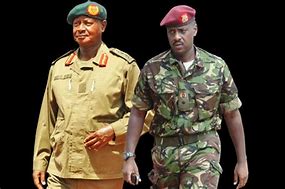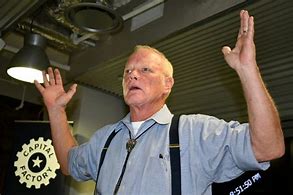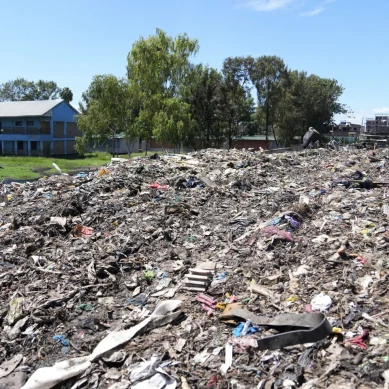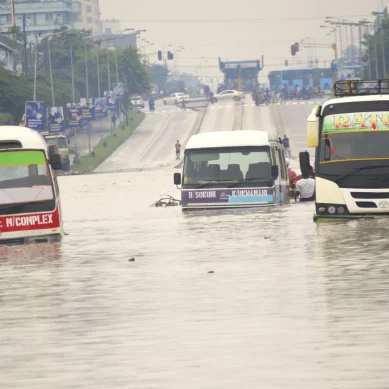
Uganda is one country in Africa where leadership and governance are pursued and practiced, not primarily for development, transformation and progress, but towards creating, maintaining and sustaining effective control of the indigenous people and country for the benefit of the rulers. The ruling clique is dominated by a small clique, predominantly from an exogenous ethnic group.
A credible school of thought argues that the aim is to exclude any organised local political opposition from resources and power. According to the school of thought, all type and manner of strategies are devised to ensure uninterrupted, continuous and perennial rule of the country by the small, exclusive, invasive ethnic group belonging to the human energy system of a grass culture called nomadic pastoralism. The group is gregarious detests just sharing resource and power with other politically-organised groups of indigenous Ugandans in the short-, medium- and long- term.
To ensure perpetual control, domination of Ugandans and uninterrupted access to the national resources and power, agues the school of thought, the group with exogenous roots, has captured all spheres of human endeavour (or civic spaces) in the country, – academic, intellectual, political, economic, social, educational, health, agricultural, horticultural, aquacultural, silvicultural, judicial, legislative. executive, business, commerce and trade, to name but a few. Besides, the group has placed electoral and administrative processes firmly in its sphere of influence and control. It determines who ascends to a political or administrative office.
This explains why increasingly many succeeding to secure political offices and administrative posts at all levels of societal leadership and governance are people with exogenous roots in Rwanda, and therefore close ethnic and family ties with the top rulers in the country. It is not rare these days to find an LC one chairman, Chief Administrative Officer, or Resident District Officer that is ethnically linked to the ruling caste in the country. There have been claims in some quarters that the leadership of the army, police, ISO, CMI and Police are ethnically dominated by the ruling clique. This means that the country is socially dominated by the small ethnic group, which also has the financial and economic power to control and exclude others from public resources and public services financed by the public. We need thorough research to credibly establish the extent to which Ugandans are controlled and excluded from resources, power and public services by an ethnically knit group of people.
The school of school I have alluded to in this article suggests that the exogenously- oriented group in power and authority in Uganda hates diversity of anything and loves conformity, monoversity and monolithicism, which make conquest and control of a people absolute. However, as Dr Munroe submits, meaningful leadership is not about control but empowering and serving the people, availing services to them. We may add it is neither about conquest and occupation. Unfortunately, in Uganda this seems not to be the case in Uganda.
The leadership and governance case in Uganda is clearly monolithic, not pluralistic even if supposedly there is pluralism in the country, with people able to organise themselves in political and other associations they want. Pluralistic organisation is not just applicable to politics, but to all human organisation and spheres of human endeavour. When pluralism is occluded, human organisation becomes too simple, structurally and functionally. Where pluralism is allowed human organisation is complex enough to allow for diverse opportunities for all to exist and to resist and adapt to perturbations in the environment, and thus be resilient. Real competition for opportunities and quality are sustained and propagated in society. People work hard. However, our rulers in Uganda openly and unambiguously prefer monopoly and monolithicism to pluralism; society is becoming too simple; human endeavours are becoming too simplistic; communities have become too simplified; communities and their cultures are becoming degraded, disrupted and simplified; the agroecological systems, which produce and sustain their human energy systems have been oversimplified with the introduction of genetically modified organisms (GMO) and application of industrial fertilisers and chemical without which they cannot survive; and overall diversity of humanity and society becomes a thing of the past.
Everything is organised for simplicity. Resources flow one way only and everything and everyone is easy to manipulate for the political gains and political ends of a dominant group in society. They do not care at all about the integrity of our ecosystems but their stomachs, pockets, glory, wealth and domination of our people. Complexity is altogether abused in favour of simplicity, which is in addendum with their simple thinking -aal tuned to money and exploitation of the poor and needy for their own benefit.
Increasingly, people have become so disorganised, weakened and disempowered that they cannot resist any manipulation by the “leaders”. “governors” and “rulers”. These can impose anything they want, anyhow, anyway, any time for their ultimate gain. They have reduced all success to money. They have sown a wrong attitude in the population that all that matters is money and that the poor and needy are useless yet Robert H. Schuller tells us that “Nobody has a money problem – it’s always an idea problem”. They have introduced a money bonanza approach to development, whereby after enforcing the vulnerable to believe that if one wants to develop, money must come first, they dish out billions, may be trillions, to select, often partisan individuals and groups ostensibly to invest in projects and begin to experience development. Most of the money ends up in the abyss, and a lot of it is stolen by government officials.
The people and society are at the mercy of the leaders, governors and/or rulers. They may have elected officials to represent their interests in government, but even those are disempowered as soon as they interface with the ethnically-oriented governors and rulers. They soon begin to serve the interests of those exercising power and authority at the expense of the people they represent and the captured nation. They become corrupted and soon start on the journey of singing praises to and worshipping the governors and rulers, and protecting every wish of the power that be. They even start working against their own natural belonging and identity and begin to serve the interests of the leaders, governors and rulers.
There are many ways the ruling caste in leadership and governance in Uganda has devised to ensure maximum conquest, occupation, control, deprivation, dispossession, disowning and disempowerment 0f the indigenous Ugandans for their continuous and perennial domination and control of the thinking, movements and actions the members of the indigenous communities. That way the country has become more of a closed than open entity -one huge Kraal. Let me list some of ways created by the rulers to perennially manipulate, conquer, occupy and control Uganda for their own gratification today, tomorrow and well in the future:
- Money as a stupefying and dividing tool in the true spirit of divide and rule
- Jobs as a bait as tool of creating praise singers and worshippers of the supreme ruler
- Creating a constitutionalised indigenous group called Banyarwanda
- Intermarriages with daughters and sons of the indigenous groups
- Creating conformity of everything
- Military capture of all civic spaces
- Ecological and environmental capture by the Luwero combatants and nomadic pastoralists.
- Using corruption as a tool of enriching a few and impoverish many who can be easily ruled
- Pursuing Impoverishment as a project
- Creating fear as a tool of conquest, control and domination
- Controlling the National Budget and the flows of money.
- Impoverishment
- Bantustanisation of the country
- Concentration of power in the hands of the President of Uganda.
- Enacting Obnoxious laws such “Anti-terrorism Law” ,“Sectarianism Law” and “Political and Other Organisations Law which are means of keeping people and organised groups under fear
- Introducing politically deprived cultural institution
- Destroying independent, diverse cooperative movement in favour of saccos
- Destruction of genuine political opposition
- Destruction of intellectual dynamism and activity in the universities and the whole society
- Positioning people in the opposition who are paid by the regime
- Universal Primary education
- Universal Secondary education.
- Operation Wealth Creation.
- Parish Development Model
- Bonna Bagaggawale.
- Operation Wealth Creation.
- Refugee economy.
- Single party system behind the facade of pluralism.
- Penetrating Political Opposition to weaken, control it, make it ineffective and ultimately. exclude from the political spectrum of the country.
- Create a sea of ignorance across the social strata.
- Appointment of Party cadres as judges, electoral commission members and resident district commissioners.
- Land grabbing by people who belong to the nomadic-pastoral energy system to which the rulers belong as a means to displace, dispossess and scatter members of the settled communities as internal refugees in their own ancestral lands
- At the Universities, disintegrate the sciences (Natural Science, the Arts and Natural Sciences} institutionalise the falsehood that the natural sciences are superior to the Arts and the social Sciences and pay the knowledge workers in the natural sciences higher than those in the arts and social sciences, thereby creating disparities and silence.
- Militarisation of everything conceivable.
The list is long and arduous. Hopefully serious academics will take this least seriously and propose and conduct research on some of these issues so that we can understand why, how and Uganda seems to be making progress toward building a culture of political, social and economic pluralism, which would benefit the country in terms of development, transformation and development. The country is experiencing political, social and economic decay and collapse, with political parties disintegrating, businesses meteorically collapsing and communities and families decaying socially, ethically and morally with the centrality of government in these unfortunate phenomena.
Meanwhile, corruption in government has become more or less a religion and is divinised right from the top echelons of power and authority. According to the topmost servant of Uganda, President Tibuhaburwa Museveni, who was once quoted by a foreign media outlet that he is no servant of anyone but himself, family and grandchildren, corruption should not worry anyone so long as the thieves are stealing government (read “public money”) and investing it in the country. He even discouraged his Inspector General of Government, Betty Kamya, from applying Lifestyle approach to fighting corruption, which had succeeded in conquering corruption in Singapore, to his military officers and government officials.
Money is now concentrated in the hands of a few, often ethnically-related individuals belonging to the ruling caste. Our few billionaires are mainly among them. Unfortunately, they are selfish unlike the billionaires of USA who have among them thousands of philanthropists, who are ready to share their wealth with impoverished in the USA and beyond. They boast of their riches and continually claim that the poor and needy are in their situation of impoverishment because they do not work had. They forget they are the corrupt stealing the country’s wealth and depriving the poor and needy, and deciding poor prices for their produce.
These questions must be asked: Why should government supply condoms and not pads for girls if it is against ethical and moral decay in families and communities if those in government are patriotic nationals and citizens? Why should government continue to supply masks when the Covid 19 threat is no longer a local, national and global threat, instead of ensuring that our health facilities are well-supplied with medicines and necessary equipment?
Failing to equip health facilities with necessary medicines and equipment can be a new window of genocide through denial, much more widespread than the genocides in the Luwero Triangle but equivalent to the Rwanda Genocide, which was widespread throughout that country. Numerous Ugandans – men, women and children – are dying in their masses every day, everywhere in the country because of a squeeze on medicines and equipment. It is disguised genocide by denial.
In this article I want to concentrate on how non-opposition is, or has been created, through the adoption by the rulers of pollical conformity as a tool of conquest, control and domination by a small ethnic group with exogenous roots.
Conformity is a type of social influence. Social Influence is a broad category that can be defined in a straight-forward way: it represents the myriad ways in which people – in person, represented, or even simply imagined – have an impact on other people’s thoughts, feelings, and behaviours. Turner (1991, cited by Elizabeth Suhay, 2016)) points out, such a category essentially represents the entire field of Social Psychology.
For most individuals, conformity is a daily occurrence, shaping their lives in ways both large and small.
But what about political conformity? We can think of political conformity as a subset of the general phenomenon of conformity. It simply represents those instances when individuals conform to politically relevant group norms (i.e., widely shared beliefs, opinions, and behaviours that relate to the governance of a polity). But political conformity can also be enforced. Note that this definition purposefully does not, otherwise, specify actors or circumstances (Elizabeth Suhay, 2016). Evidence for political conformity specifically, is a subject investigated by psychologists and political scientists alike.
Right from 1986, the triumphant bush war combatants hoodwinked numerous Ugandans – educated and uneducated – into believing that liberation of Uganda had occurred; that they were liberators. Sustained propaganda throughout the bush war period (1981-1986) had constantly and repeatedly cast past leaders as undemocratic, villains and the real enemies of Uganda. The past leaders were cast as “Oppressors and murderers”. Although we know that guerillas capture power through sustained lies, murder, looting and denials, the combatants were able to convince many vulnerable Ugandans that they were a disciplined group that does not murder and loot.
In fact, they attributed all the skulls of those killed during the bush war to the government army, which many of them, including the rebel leader, then called Yoweri Museveni, deserted – the Uganda National Liberation Army (UNLA) to wage war against government forces. Fortunately, President Tibuhaburwa Museveni’s original version of his book “The Mustard Seed: The Struggle for Freedom and Democracy” details the numbers of the people killed by his rebel group throughout the bush war and on the way to Kampala to capture the instruments of power.
Dr Kizza Besigye, the enduring fighter democracy and justice, who was also a member of the NRA rebel group, once categorically stated that 500 people lost their lives in the bush war.
It should be remembered that during the burial or Professor Adoniya Tiberondwa, a UPC stalwart, at his home in Bushenyi, General Kahinda Otafiire told mourners who dressed in UPC colours that as combatants, they would wear the red T-shirts and then go on the rampage. At other times, they would wear the uniform of the UNLA, which they had in plenty, since the majority had just walked out of the UNLA. This way the population would be easily hoodwinked to believe that it was UPC youth wingers killing people.
Three processes have gone on hand in hand during the militarily enforced reign of the National Resistance Movement (NRM) in clothed with civility as shown by regular elections. Nevertheless, the elections are militarily-mediated, controlled and influenced towards producing the electoral results that the military and President Tibuhaburwa Museveni want. They have got those results over the last 28 years of NRM-organized elections. Since the electoral Commission consists of NRM cadres it has always been easy to manipulate the electoral process to produce the favoured and favourable results.
One process with NRM is political socialisation of everyone into NRM political attitudes, beliefs and practices. This process, which typified NRM/A before the making of the Uganda Constitution 1995, ensured that even children were born into NRM and Grew up in NRM. The teaching of political education in schools was abolished so that only the politics of NRM would be impacted upon school children.
Another is political ethnicisation.
The third one is ethnic politicization. The latter two are actually dangerous glorified form of political socialisation.
Political socialisation is the process whereby individuals are initiated into the dominant values and traditions of a society, including those values which define the legitimate processes of politics and the way that power is exercised (Charlotte Nickerson, 2024). In the case of NRM, it has been political socialisation into a monolithic system of governance by both inclusion and exclusion with the ultimate aim of destroying any form of opposition in the country.
Indeed, while swearing in for a fifth term as president, President Tibuhaburwa Museveni declared that he would spend the next five years (2016-2021) to ensure that there is no Opposition in Uganda. In fact. he promised that by 2020, the year he said Uganda would be the newest middle-income economy, there would be nothing like Opposition. What he wanted was nothing but the political conformity of every Ugandan -young and old. He wanted everyone to politically conform to NRM structure, functionality, ideology and activities. In any case, the thecal government and LC system have been adulterated to make them integral to NRM structure and function. Even those who claim to be in Opposition are sucked in once elected or not elected since the LCs have been stolen by NRM.
This is politically guided political socialisation of individuals. Both individual and mass socialisation are employed through strategies such as military training of the masses using Mchaka Mchaka lifted from Tanzania. During the training, young people are politically- oriented or tuned into NRM beliefs and practices, which, unfortunately, all reduce to conquest, occupation, control and domination by an ethnic caste, that took up against the government of Apollo Milton Obote, effectively capture the instruments of power from the Tito Okello Junta that had captured the instruments of power from Apollo Milton Obote.
In effect, it was liberation of the refuges who had stressed the government of Uganda in the early 1960s with their determination to attack Rwanda and capture the instruments of power from the Hutus of that country. They numerically dominated the National Resistance Army (NRA) by fsr.. It should, however, be pointed out NRM is not the only agent of political socialisation in Uganda. The others are the family, friends, education, mass media, religion, political parties, work (e.g., Charlotte Nickerson, 2024). However, these are being infiltrated by NRM government agents (spies) to ensure that they surrender political socialisation in Uganda to NRM only.
It should be remembered that once NRA captured the instruments of power in 1986, it deceived the nation that it had reached a gentleman’s agreement that while it ruled, political parties would suspend their political activities; that they agreed to confine themselves to their headquarters. This effectively excluded them from directly interacting with the masses, leaving only the NRM to do so. Since then, NRM has been the political arm of NRA (now UPDF), just as was the case during the bush war era (1981-1986).
Although deceptively there are registered political parties, as in the past, they are not allowed to interact with the population. They only meat at their headquarters, designated places under heavy military or police watch or in workshops, where they may be disrupted by the police and army the NRM.
So, for 38 years it has been only the NRM doing politics, meaningfully and effectively interacting with the masses and organising elections – local or national -which must be won by NRM. The Electoral Commission -which organizes the elections, is by constitutional design, appointed by the President of Uganda, who currently is the Supreme Chairman of NRM, who has been continuously been in the country’s top-most post, and makes sure that all those he appoints are NRM cadres. Indeed one, time in the 1990s, The President announced that he was going to appoint NRM judges to the bench of Judges. I don’t know how many such Judges he has appointed, but virtually every indigenous Ugandan who has been alert, knows that the Chief Justice in an NRM cadre, who was once a personal lawyer of the President.
So, political socialisation is taking place in a sociopolitical environment that has been effectively captured both by the military and the political party in power. There is no boundary between the military and the political aspects of the NRM. Whatever the constitution says, the military is an aspect of NRM and NRM is the political wing of the military just as in the past. Openly, the military participates in NRM politics in which the soldiers have been politically and ethnically socialised during their training and practice.
They are all tuned to ensuring that there is no opposition in Uganda while President Tibuhaburwa Museveni rules, which he has done for the last 38 years, making him one of the longest-staying Presidents in power in the whole world.
Political socialisation of the NRMA-NRM/UPDF of everyone in every station of life and endeavour, including families, education, mass media, religion and political parties, all of which have been politically captured by President Tibuhaburwa Museveni himself, combine with financialisation of the political processes, including the electoral processes, and a select number of people in the Opposition parties and religious organisations, particularly the Pentecostals.
All have infiltrated by NRM party functionaries, military elements and spies who pose as members when, in fact, they are paid from public funds to act as perturbation agents to disorganise the parties and project them as incapable of pushing NRM out of power.
In these days of homosexuality talk they can just be baptised as homosexuals to cause disaffection between them and the electorate. Som religious leaders openly their “political” support to NRM and the NRM chairman, who is the President of Uganda.
What, therefore, political socialisation initially pursued by NRM/A and now by NRM/UPDF, is doing is to undermine the democratization process, which the bush war combatants in power for more than 38, said they had ushered in (e.g. Juma Okuku, 2002). It is fuelling political ethnicisation and ethnic politicization of and in the country for the effective domination of the politics of Uganda by a small exogenous ethnic group, constitutionalised in the Uganda Constitution 1995, as a new indigenous group of Uganda.
We can however, ask: what is political ethnicisation and what is ethnic politicization?
Political ethnicization, as indicated above, is the highest form of political socialisation. However, it is not always a good thing, especially where there are many ethnic groups. People are socialised in ethnic thinking and practice for the benefit of an ethnic group.
In the case of Uganda, the beneficiary ethnic group of political ethnicisation is the constitutionalised Banyarwanda ethnicity of Tutsi type, which, using its strong presence in the Constituent Assembly in the early 1990s, and chaired by the President himself, was integral and at the centre of making the Uganda Constitution 1995, which created the new indigenous group of Uganda by that name. Those who were strongly behind this constitutional act may have been convinced that for once and all they were solving the enduring Banyarwanda Question in Uganda. Time, the ultimate judge, will tell.
Ethnic politicization is the politicization of ethnic identities. Agneza Bozic-Roberson (2001) carried out interdisciplinary research, which developed a framework or a model for the study of the politicization of ethnicity; a process that transforms peaceful ethnic conflict into violent inter-ethnic conflict. The research argues that it is necessary to conduct independent analyses of ethnic and political aspects of violent inter-ethnic conflicts. Only in recognizing the contexts in which ethnicity can be politicized, and the mechanisms by which ethnicity is politicized, the research argues, can we recognize the true nature of the violent inter-ethnic conflict and then develop strategies for the prevention of such conflicts.
There is no doubt that in Uganda both processes of ethnicising politics and politicising ethnicity are simultaneously taking place with political socialisation of people of different indigenous groups into the NRM. The sole aim is perennial conquest, occupation, domination of the politics of Uganda and disempowerment of the indigenous people of Uganda well into the future by an ethnically glorified group in power. Consequently, politicization of ethnicity and ethnicization of politics are proceeding simultaneously with the disempowerment, desocialisation, depoliticizations, deradicalization and deintellectualization of the people and abuse of the right to associate in free, active political parties in the country.
It is to this end that the existing parties, NUP, ANT, FDC, DP, UPC, and others have been infiltrated by elements or agents of the ethnic caste in power in order to spy on the party leaders and to disorganize the parties to render them ineffective. Or else political buying and conscription of the top leaders in Opposition are some of the strategies frequently used, alongside propaganda, to cause disaffection between the parties and the population.
Meanwhile resident district commissioners, ISO, police and the military are used to ensure that the parties do not engage in any useful political activity that would interfere with the politically manufactured “popularity of the Movement or contradict its supreme leader, President Tibuhaburwa Museveni. In one sentence, the country and its people are conquered, occupied and controlled for the sole political gain of the ethnic caste in power.
Unfortunately, history has revealed that ethnic politics always results in ethnic and nationalist violence sooner than later (e.g. Brubaker, and Laitin,.1998). It is almost correct to say that as the NRM regime pursues political conformity, ethnic politicization, political ethnicisation and de-democratization of the country, it is steadily preparing Uganda for a future of perennial chaos and violence. This would seem to confirm President Tibuhaburwa Museveni’s revelation to the then The Monitor Newspaper in 1997 that Uganda of the future after him would be very difficult to govern. With no effective opposition it is difficult to cause the rulers to account for their excesses or bring about change. It means hereditary politics, leadership and governance are unavoidable. If corruption is what sustains the NRM , then we shall not free ourselves from it under hereditary politics, leadership and governance well in future. Politicised Ethnicity always means income inequality. It also means unjust access to opportunities, jobs, social services, resources and public services. They flow to one ethnic group. This is also true of political power.
For God and My Country
- A Tell report / By Prof Oweyegha-Afunaduula, a former professor in the Department of Environmental Sciences of the Makerere University, Uganda











